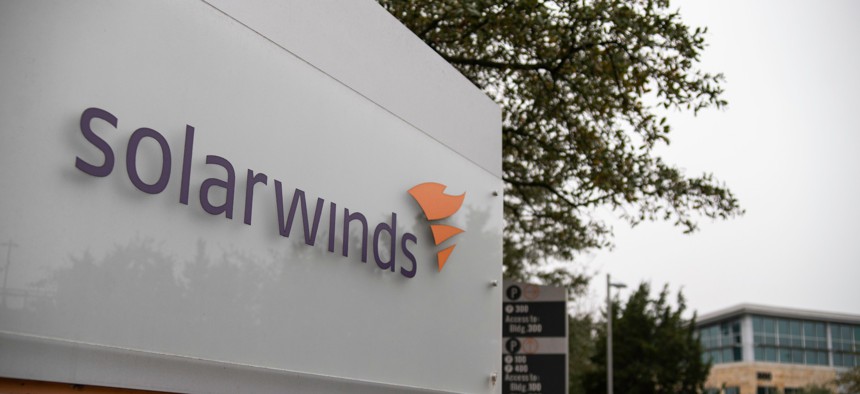SolarWinds Hack Also Hit States and Local Governments, Reports Say

Shutterstock/Travel_with_me

Connecting state and local government leaders
STATE AND LOCAL ROUNDUP | Experts worry local news could spread anti-vax conspiracies … Minnesota officials want to keep up fence around state capitol .... Massachusetts town sets out empty chairs as Covid memorial.
The suspected Russian hackers who infiltrated SolarWinds software at key federal agencies, like the Department of Energy and the U.S. Treasury, didn’t just breach federal government systems, but also local and state governments, according to several news reports. The Intercept reported that Austin, Texas was breached, with hackers appearing to have “used Austin’s network as infrastructure to stage additional attacks.” A city spokesperson neither confirmed nor denied the intrusion. “While we are aware of this hacking group, we cannot provide information about ongoing law enforcement investigations into criminal activity,” the article quotes a spokesperson saying. Pima County in Arizona was another victim, Reuters reported. Pima County Chief Information Officer Dan Hunt said the SolarWinds software was taken offline after the hack was discovered. Citing an anonymous source, Bloomberg News reported that three state governments were also hacked, although the source did not identify the states. The federal Cybersecurity and Infrastructure Security Agency has warned that the hack of the IT monitoring software used by many entities across the country “poses a grave risk to the Federal Government and state, local, tribal, and territorial governments as well as critical infrastructure entities and other private sector organizations.” While CISA has not identified the origin of the hack, many experts and lawmakers have identified Russia as the likely culprit. On Friday, Secretary of State Mike Pompeo said in a radio interview that Russia is to blame. “This was a very significant effort, and I think it’s the case that now we can say pretty clearly that it was the Russians that engaged in this activity,” he said. “I can’t say much more as we’re still unpacking precisely what it is, and I’m sure some of it will remain classified. But suffice it to say there was a significant effort to use a piece of third-party software to essentially embed code inside of U.S. government systems and it now appears systems of private companies and companies and governments across the world as well.” [The Intercept; Reuters; Bloomberg; CNN; Politico]
Read more about the SolarWinds hack at Nextgov.
LOCAL NEWS | Experts are criticizing local news outlets that are airing the concerns of anti-vaccination activists about the new Covid-19 vaccines. This is particularly a problem with local television news, which the Pew Research Center has found is the most popular news source. [NBC News]
CAPITOL FENCE | Minnesota officials are urging a state committee to keep a fence around the state Capitol building. The fence costs about $8,000 a month. Public Safety Commissioner John Harrington said the fence has remained necessary. "We would like to see a diminution of the number of protests that originate with groups that have a history of vandalism or assaultive behavior," he said. [Star Tribune]
FOOD PLAN | Baltimore’s new mayor, Brandon Scott, outlined a plan to spend $5.3 million to provide food to people in need because of the coronavirus pandemic and economic downturn. The idea includes providing 20,000 food boxes each week to Baltimore residents at 100 sites across the city. [Baltimore Sun]
TOWN MEMORIAL | Chairs are being placed on the lawn outside city hall in Newton, Massachusetts to commemorate the local residents lost to Covid-19. “As we pass by, we will remember that each empty chair reflects a life lost,” said Mayor Ruthanne Fuller. [Boston Globe]
Laura Maggi is the managing editor at Route Fifty.

NEXT STORY: Only Seven of Stanford’s First 5,000 Vaccines Were Designated for Medical Residents





